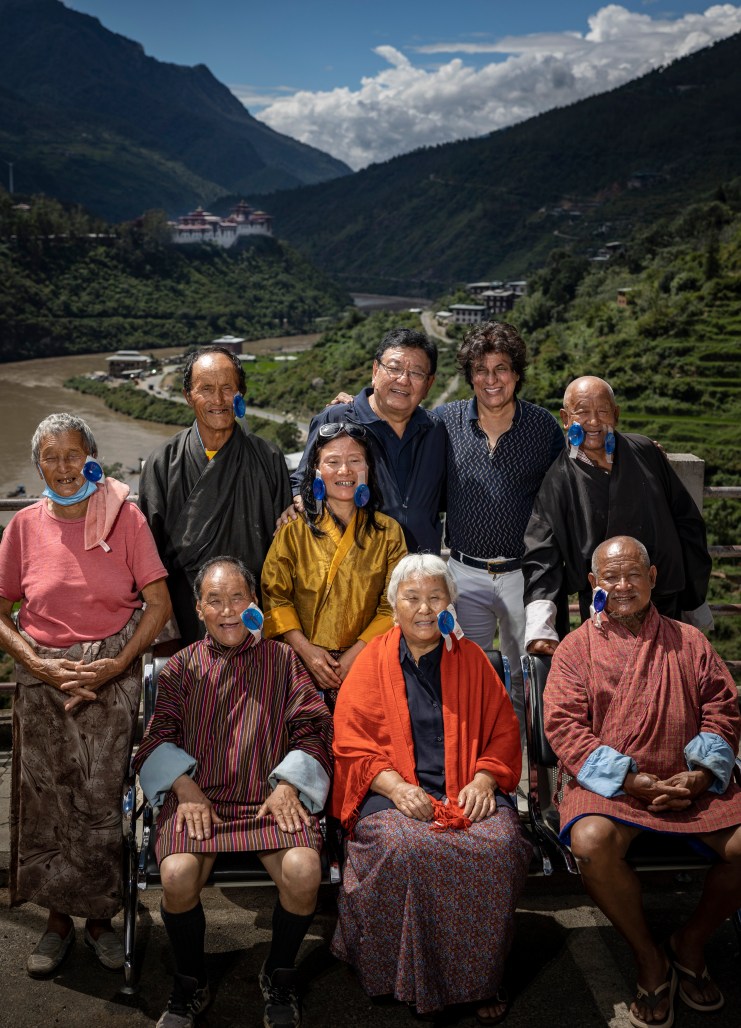
We Should Deploy The Lessons of Covid to Combat Needless Blindness
World Sight Day (13 October) is an international day of awareness to focus the attention on the global issues of eye health. The hashtag for this year’s World Sight Day is #LoveYourEyes. Unfortunately, most of those most in need will not get to engage with this sentiment. Over 90% of the world’s 40 million blind people live in low-income countries. Approximately 20 million are blind due to cataracts. A great many could be easily cured.
The fact needless blindness – that is, blindness that could actually be reversed – continues in a world of cures is a modern-day scandal as big as starvation in a world of surplus food. Thanks to a technique invented by my Tej Kohli & Ruit Foundation co-founder, Dr Sanduk Ruit, curing cataract blindness is not even particularly difficult or expensive. There is no mystery. No new miracle cure is needed.
The problem is that the vast majority of those living with needless blindness are disenfranchised from everyday life. They are dispersed in remote villages where the prospect of accessing the ‘global village’ through social media is non-existent. Mostly they are living in extreme poverty. Disproportionately they are women. Sometimes they are literally living in darkness. In every case, their eyes have failed. And we have failed them.
Take as an example one family that my Tej Kohli & Ruit Foundation recently helped in Nepal. Two parents had until recently been living in a cow shed with their three young children, all of whom were blind. The family was subsisting on $300 of annual income. They were not engaging with hashtags to motivate behavioural change. They were surviving and, frankly, praying for a miracle.
Thanks to intervention the children can now see clearly and have avoided permanent blindness. But their story is just the tip of the iceberg. 94 million people worldwide have ‘severe’ visual impairment due to cataracts. 20 million are cataract blind. 5 million more become blind each year.
The Tej Kohli & Ruit Foundation has screened 149,568 patients and cured 18,465 of blindness since 2021. We will cure 500,000 cataracts in the developing world by 2030. But on current trends, 40 million new cases will occur in the same period. And the backlog of untreated cataracts has worsened in every developing country because operations to cure and prevent blindness were postponed during two years of Covid-19 lockdowns.
Combatting all of this will require coordinated global intervention on a scale never seen before. Yet ironically it is the global response to Covid-19 that also gives cause for hope. If Covid-19 taught us anything, it is that the world can unite and triumph over a global health challenge. Now is the moment to deploy that lesson to combat blindness.
To do this we need to be clear that needless blindness is too substantial to be tackled by individual nations. A study published in The Lancet calculated that the positive economic impact of curing someone of blindness in the developing world was 1,500% of the cost of surgery. That is a very good value for the global community.
On World Sight Day 2022 I offer thanks and kinship to a great many charities and NGOs who are working to eradicate needless blindness in the developing world. And I ask leaders of the global community to join us.
The Tej Kohli & Ruit Foundation is a restricted fund operating under the auspices of Prism The Gift Fund, registered UK charity number 1099682.

